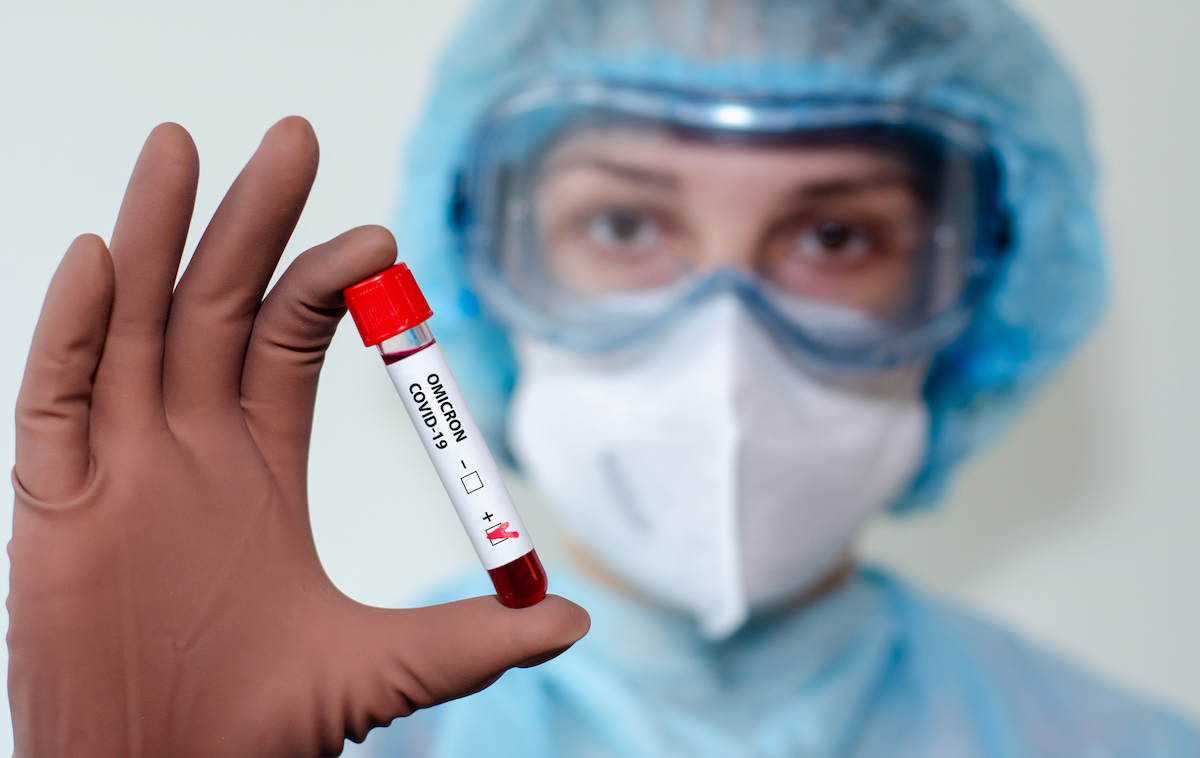<< Back
What These Studies Say About COVID Vaccine Effectiveness Against Omicron

December 15, 2021
Omicron, identified only last month as a COVID-19 variant of concern by the World Health Organization, has now spread to at least 77 countries and 35 U.S. states, including Connecticut.
Omicron cases in the U.S. likely spiked from 0.4 percent of new infections to 2.9 percent from Dec. 4 to Dec. 11, according to new data from the Centers for Disease Control and Prevention. Though that indicates prodigious transmissibility, it’s still too few cases to determine the level of protection provided by current vaccines.
“One of the most important landmarks, a gift of science, we’ve received in this pandemic and probably in the history of mankind is the vaccination against COVID, which has protected and saved a lot of lives,” says Dr. Ajay Kumar, Hartford HealthCare’s Chief Clinical Officer.
It’s still uncertain how effective this gift will remain against Omicron.
But Dr. Anthony Fauci, the White House’s medical adviser, said Dec, 15 that a booster dose of either the Pfizer-BioNTech or Moderna vaccine could offer substantially more protection against Omicron and, for now, there’s no need for a new, Omicron-specific vaccine.
These studies suggest a drop in effectiveness from the Delta variant to Omicron, though with less severe disease and critical additional protection provided by a booster:
Discovery Health (South Africa)
People who received two doses of the Pfizer-BioNTech had a 70 percent chance of avoiding hospitalization — a drop from 93 percent during the Delta wave — according to cases from Nov. 15 and Dec 7 reviewed by Discover Health, South Africa’s biggest private health insurance administrator. Protection against infection, meanwhile, dropped to 33 percent from 80 percent.
This real-world study, released Dec. 14, included more than 211,000 COVID-19 test results, including 78,000 attributed to Omicron.
Massachusetts General Hospital, Harvard, MIT
Blood samples from people who received two doses of the Moderna or Pfizer-BioNTech vaccine or the single-dose Johnson & Johnson vaccine matched against a pseudovirus engineered to act like the Omicron variant produced “low to absent” antibody neutralization, according to researchers at Mass General Hospital in Boston, Harvard and the Massachusetts Institute of Technology. Yet blood from participants who recently received a booster dose achieved potent neutralization of the Omicron variant.
Oxford University (United Kingdom)
Two doses of the Pfizer-BioNTech vaccine were substantially less effective against Omicron compared to previous variants, according to a University of Oxford study published Dec. 13 that could foreshadow more infections among the fully infected and previously infected.
A booster, said the researchers, would improve immunity against the highly transmissible new variant.
In the study, participants’ blood samples were tested 28 days after their second dose. (The study also included the Oxford-AstraZeneca vaccine, not available in the United States.) When Omicron was added to the samples, researchers noted a “substantial fall” in neutralizing antibodies compared with the immune response against previous variants.
As in other studies, the results do not suggest Omicron causes more severe illness. But people with only two doses of the vaccine could be at increased risk.
Sheba Medical Center (Israel)
Three doses of the Pfizer-BioNTech vaccine provided four times less neutralizing capabilities against Omicron as they did against Delta despite still showing evidence of significant protection against the new variant, according to researchers at Sheba Medical Center and Health Ministry’s Central Virology Laboratory.
The study, published Dec. 11, compared the samples of 20 vaccinated healthcare workers at Sheba who had received two vaccine doses in the past five or six months with 20 other healthcare colleagues who had received a booster in the previous month. Those with only a second dose had no neutralizing power against Delta, though they retained some protection against Delta and the original Wuhan strain.
This immediately alarmed researchers because of the potential swift spread of Omicron, even among the vaccinated. Those with a third dose, however, produced a hundredfold increase in neutralization ability.
“We do have that set of data,” says Keith Grant, APRN, Hartford HealthCare’s Senior Director of Infection Prevention, “but there needs to be bigger cohorts in order for us to really make significant policy changes.”
Pfizer-BioNTech (United States)
Days before publication of the Sheba study, a lab study by Pfizer and German partner BioNTech found it will take three doses of their vaccine to produce a similar level of neutralizing antibodies to Omicron as two doses produced against the original virus and subsequent variants. Read more here.
Africa Health Research Institute (South Africa)
Two shots of the Pfizer-BioNTech vaccine were up to 40 times less effective against Omicron than they were against the original COVID-19 strain, according to lab tests performed at the Africa Health Research Institute in Durban, South Africa.
Researchers used modeling to determine vaccine efficacy after examining blood plasma samples from 12 study participants. Despite reduced protection, they said, two doses likely could protect against severe illness.
“Based on what we’re seeing right now,” says Grant, “our concerns are very consistent with the data that we’ve seen through the South African studies, the Pfizer study and trials and the studies that are coming out of the UK and Israel.